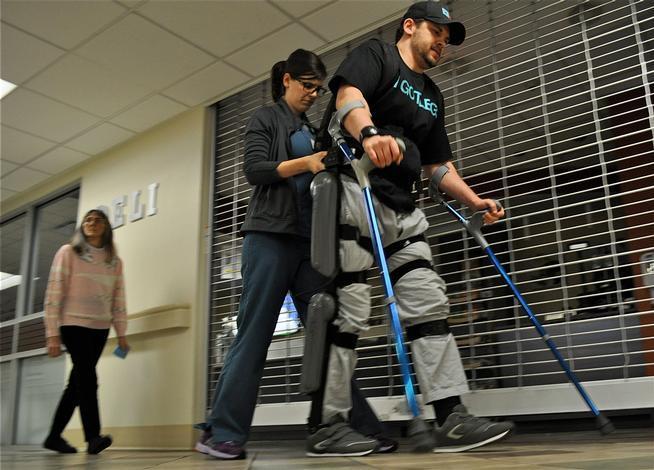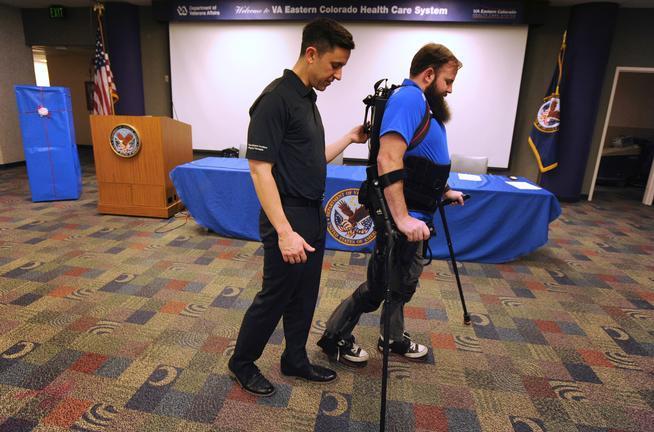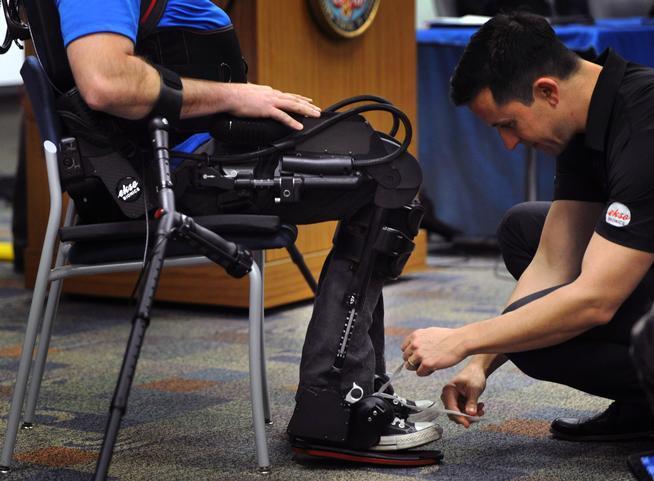Five years ago, a bomb explosion in southern Afghanistan paralyzed Army Sgt. Dan Rose from the chest down. Doctors said he would never walk again.
On Wednesday, at the Department of Veterans Affairs medical center in Denver, he proved them wrong. With crutches and a bionic walking machine, the brown-bearded young man rose from his wheelchair, strutted slowly across the auditorium with a metallic swoosh, pirouetted and strutted back.
“It was crazy,” he said of standing and walking again. “Seeing people in the eye instead of the belly button. It was awesome.”
Now, the VA office plans to study whether the psychological boost Rose got from standing upright can help veterans in Colorado suffering from traumatic brain injuries.
Thanks to SoldierStrong, a nonprofit dedicated to providing advanced medical technologies to veterans, the Denver VA got the free exoskeleton suit to study whether it can help brains as well as bodies. The computer-driven walking machine normally costs $150,000 to $188,000.
The exoskeleton, formally the Ekso GT device, will be tried on about 30 veterans in wheelchairs at first, and the VA hopes to have data by summer on its potential psychologic benefits.
“I see the psychological and physical as being connected,” said Lisa Brenner, a VA research psychologist and mental illness clinic director.
The program will evaluate “what it’s like for people to stand, talk to people eye to eye, participate in life events,” she said. “The world’s set up for people who are standing.”
Rose remembers one drawback about standing again for the first time in his home. He could see the top of his refrigerator covered in dust.




